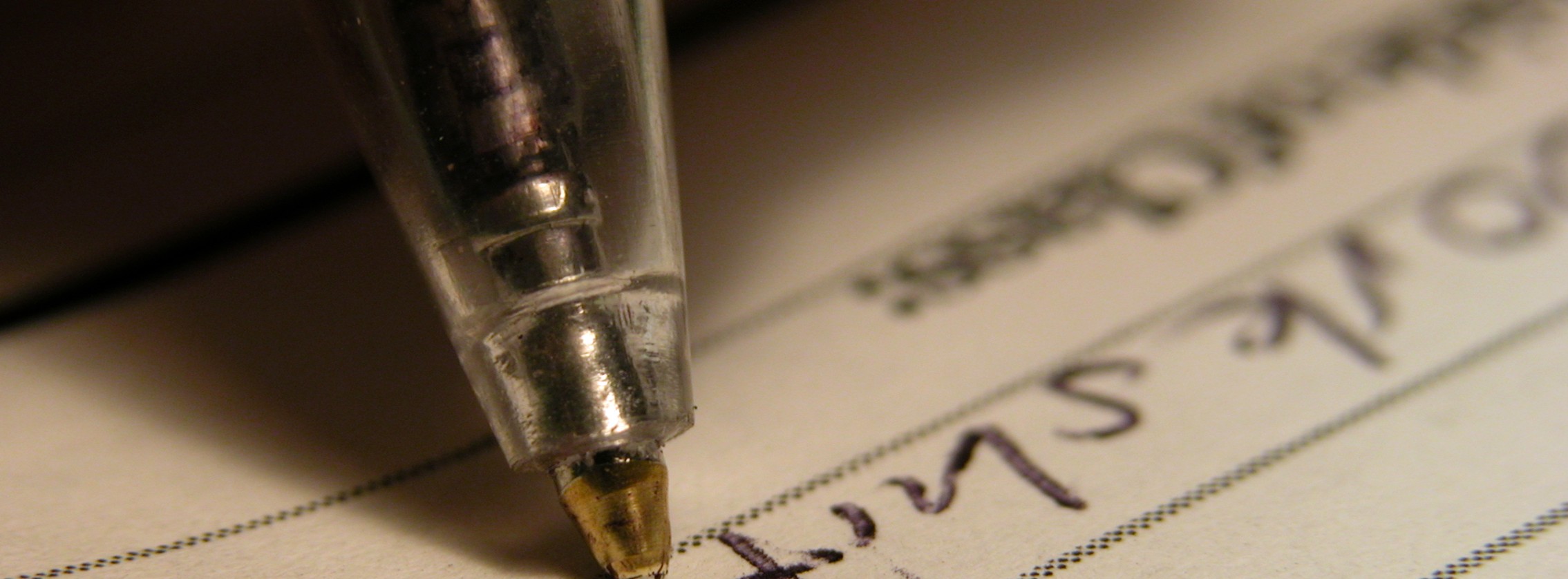Writing is never an easy task regardless of the form. Whether you are writing an academic essay, a complicated scientific paper, or a simple classic literature, you will definitely spend a lot of time perfecting your writing. Even a professional writer will never be able to produce an excellent writing without making and fixing countless number of drafts. Starting from brainstorming of ideas to final proofreading, the process of writing is actually a long journey that should never be taken lightly.
This article is neither a guide nor tips and tricks. The ultimate purpose of this article is to provide an insight. The writer hopes that you, after reading this article, become aware of things that should naturally be taken into consideration when you are working on a writing composition. Some of the contents, however, may look like a guide, just for the sake of conveying ideas. This article does not describe specific ideas, but discusses the cores, the intrinsic natures, the principle substances of writing. Before going to the main part of the article, please keep in mind that your writing is an exact image of yourself. People are able to judge your personality and traits by reading your writing.
1. Make a backbone of your ideas
Before you start penning down your thoughts, take your time, do not rush. Thinking about the general outline of your writing structure is the most important thing you will not want to miss. By thinking and writing down the structure of your whole ideas, you are providing yourself with a comprehensive image of what you are going to write. Deciding the whole story-telling flow always comes first before going down through detailed ideas, or else you will end up wasting your time, modifying your writing all over the place due to lack of structure later on.
2. Make sure you have a topic sentence in each paragraph
Everyone, including you, may have learned what is called topic sentence. A topic sentence is the full-sentence version of a single idea in your writing backbone. A badly organized paragraph without any focus will cause the readers to stray from your main story. A topic sentence can be put at the beginning, in the middle, or at the end of a paragraph. Two of the same topic sentences can even be put both at the beginning and the end of a paragraph to give a final stress or reminder. The topic sentence at the beginning is meant for stating the paragraph purpose and the restated one at the end is to conclude the paragraph. This style is usually used in writings that aim to influence readers.
3. Use available factual data
To widen a topic sentence and expand it into a full paragraph, you have to elaborate the general idea in your topic sentences. Here, reasonings supported by factual data (numbers or research findings) should be considered since data can persuade readers easily. People tend to believe numbers, not words, and they often find it easier to read numbers instead of a rigid body of text.
4. It is all about drafts
Writing means drafting and loads of editing. Of course, you can produce a good writing in a single try. However, do not and never expect an outstanding one without any proofreading. Proofreading here does not only mean that you have to ask other people to do it for you. You yourself should also read your writing many times. The “proofreading and editing” process is actually an endless cycle that should be conducted until you find your work satisfying enough. But exactly when is satisfying enough? It greatly depends on many factors, especially you. By gaining experience, you should be able to judge when your work is good enough. It is not always useful to ask comments from many people. Even professional writers will still get critics from people with different points of view. You decide when the cycle ends.
5. Pay attention to vocabularies
Depending on your readers, word choices will be different. First of all, analyze your target. Easy vocabularies are sometimes better. Using simple idioms does not mean you are bad in writing. It just shows that you are thinking about your readers. When writing an academic proposal or a motivation letter, students tend to use difficult technical words in order to make their writings look more professional. But actually the ones who read the proposal/letter for the first time are usually not the professors applied by the students. People from the administrative office usually have to read the students’ letters before deciding whether the students are eligible to enroll before passing the letters to the next round of selection.
6. Grammar gains trust
It is a common wisdom that you do not have to pay attention to grammar too much when speaking English. The same for other foreign languages, a little bit of courage and sufficient knowledge of vocabularies is enough to connect you and foreigners during conversation. However, it is totally different in writing. Misleading sentence structures, for example, may lead to extreme misunderstanding. Checking grammatical errors and reviewing grammar is of course not an easy task. That is why paying attention to grammar in your writing shows that you are a meticulous person, a thorough checker, and a trustworthy partner. This also applies to spell-checking. Anyway, by checking grammar, you are also learning new things at the same time. There is no demerit at all. Nowadays, you do not even have to look for someone to check your grammar due to the existence of spellchecker in word documents and as always, Google is your bestfriend.
7. Conjunctions = smooth story telling
Remember that writing is not the same as compiling single sentences. Conjunctions are required to breathe life into your sentences and create story nuance. Using conjunctions correctly is also one part of grammatical issues, but this is actually a bit different. It is not a matter of what is right and what is wrong. Sometimes more than two different conjunctions can be used because their meanings are the same yet they have a quite different nuance. Conjunctions are more related to word choices. Just one thing though, conjunctions do not always have to be used.
Okay, once again, there is no specific guide (such as grammar lesson, conjunction lesson, good word choices, etc.) written here. You can always look for yourself those kinds of guides on the internet. Be sure to master the skill of obtaining information yourself by googling often. This article only serves as a general guide to give you starting points. They should give you an insight of what and from where you can start learning if you want to write well. Good luck!
Note: Do you realize that this article has its main idea stated twice (at the beginning as purpose, and at the end as conclusion)? Refer to Point 2. Think of the whole article as a paragraph and the 7 main points as the paragraph’s decriptions.
Photo is credited to Wikimedia.









